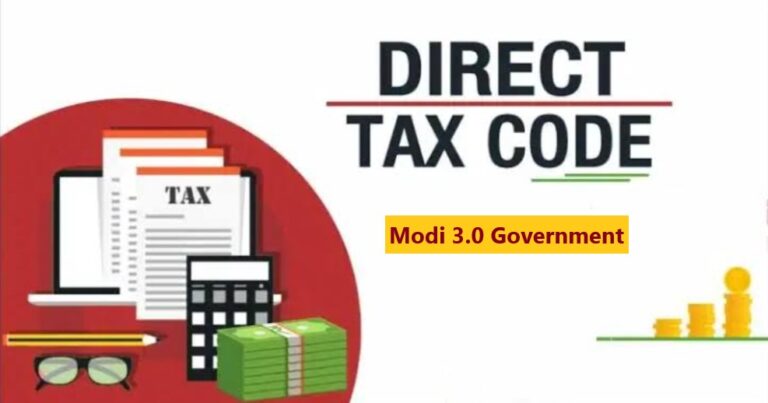Aligning with Modi’s vision for the first 100 days of his third term, the revamp of direct taxes is expected to address current economic imperatives and contribute to India’s aspirations of becoming a developed nation by 2047.
In a significant move, the Narendra Modi government, if re-elected, is set to prioritize the implementation of the long-pending Direct Taxes Code (DTC). Official sources reveal that discussions are already underway within the finance ministry to kickstart the process, indicating a strong directive from the Prime Minister himself.
The objective behind this initiative of Modi government is to streamline the complex landscape of direct taxes, bringing them more in line with global standards while simplifying compliance for taxpayers. The groundwork for this overhaul will be based on the draft prepared by a task force back in 2019.
Key proposals under consideration include a revamp of the capital gains tax regime and addressing various challenges in the implementation of tax deducted at source (TDS). This move is seen as a crucial step towards modernizing India’s tax framework and fostering economic growth.
The journey of the DTC dates back to the UPA I government, with a draft Bill introduced in 2009 and subsequent revisions in 2012 and 2014. However, the Bill lapsed with the dissolution of the 15th Lok Sabha. Since then, successive Modi administrations have undertaken measures to ease compliance and rationalize tax rates, including a notable reduction in corporate income tax rates in September 2019.
Experts emphasize the need for simplification and rationalization of tax provisions, particularly in light of the numerous amendments made to the Income Tax Act over the years. The focus is on ensuring seamless adoption of the new tax regime, especially for individual taxpayers.
While many proposals from earlier DTC drafts have already been implemented through annual amendments, there remain pending reforms, particularly concerning the taxation of capital gains and simplification of TDS provisions.
Aligning with Modi’s vision for the first 100 days of his third term, the revamp of direct taxes is expected to address current economic imperatives and contribute to India’s aspirations of becoming a developed nation by 2047.
Recommendations from the task force report advocate for radical changes, including rationalization of personal income tax rates and stability in the tax system to minimize disputes. The overarching aim is to introduce a progressive tax regime that is simple, fair, and enforceable, taking into account the evolving economic landscape.
Analysts highlight the need to simplify the capital gains tax regime and streamline TDS provisions, given the complexity and varied tax rates across different asset classes. With the government’s enhanced ability to monitor transactions digitally, there is a push for modest TDS rates and a reduction in the number of TDS sections.
Overall, the implementation of the DTC holds the promise of a more efficient and equitable tax system, conducive to India’s economic growth trajectory in the years to come.
Also Read: Embracing Artificial Intelligence (AI) for Efficient Tax Compliance
Read More
ITAT Ahmedabad Rules that Unexplained Expenditure Triggers Deeming Provisions of Section 69
Madras High Court Grants Relief to L&T in GST ITC Dispute due to Mismatch Between GSTR-2A & GSTR-3B
